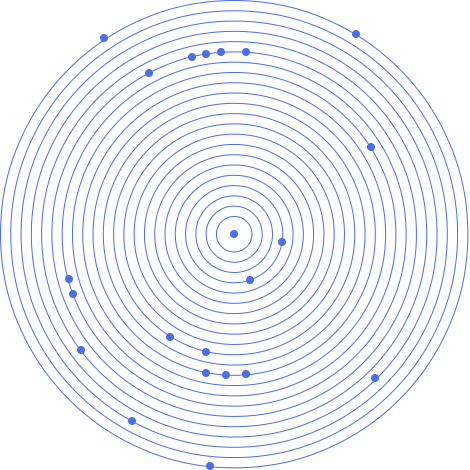
"Our tailored course provided a well rounded introduction and also covered some intermediate level topics that we needed to know. Clive gave us some best practice ideas and tips to take away. Fast paced but the instructor never lost any of the delegates"
Brian Leek, Data Analyst, May 2022








• Basic PL/SQL language features
declaring variables ( including. use of %TYPE %ROWTYPE, SUBTYPE, TYPE)
Constant, NOT NULL, DEFAULT etc.
Assignment, IF, CASE, LOOP , WHILE, FOR, NULL; GOTO
• 3 record types (table, cursor and user-defined)
• SELECT INTO and BULK COLLECT
• PL/SQL tables (memory arrays) in one dimension
• Design and code anonymous blocks for 3GLs
• Designing performance sensitive cursors (using parameters + BULK COLLECT)
• Introducing PLSQL Exception handling
• Design and code server-side SQL functions and procedures
• Passing parameters to PL/SQL subprograms
• Designing server-side user-written PACKAGES
Including persistent variables, cursors, types, constructor methods,
• Coding DML triggers
• Code EXECUTE IMMEDIATE type SQL
• Use DBMS_OUTPUT and UTL_FILE
• (briefly) Review other important DBMS packages
Exercises
OPLSQL provides a series of progressive and thoughtful exercises to reinforce course teaching. Exercises range from Try-This-Now quick work to longer, more thoughtful approaches. Typically, course content is organised so that for nearly every hour of the course, delegates have an exercise to do
Each Delegate Receives
1. A workbook with a set of course foils and exercises
2. A course disk with exercises and solutions where appropriate, code samples, tables and data so that work can be repeated later.
• Basic PL/SQL language features
declaring variables ( including. use of %TYPE %ROWTYPE, SUBTYPE, TYPE)
Constant, NOT NULL, DEFAULT etc.
Assignment, IF, CASE, LOOP , WHILE, FOR, NULL; GOTO
• 3 record types (table, cursor and user-defined)
• SELECT INTO and BULK COLLECT
• PL/SQL tables (memory arrays) in one dimension
• Design and code anonymous blocks for 3GLs
• Designing performance sensitive cursors (using parameters + BULK COLLECT)
• Introducing PLSQL Exception handling
• Design and code server-side SQL functions and procedures
• Passing parameters to PL/SQL subprograms
• Designing server-side user-written PACKAGES
Including persistent variables, cursors, types, constructor methods,
• Coding DML triggers
• Code EXECUTE IMMEDIATE type SQL
• Use DBMS_OUTPUT and UTL_FILE
• (briefly) Review other important DBMS packages
Exercises
OPLSQL provides a series of progressive and thoughtful exercises to reinforce course teaching. Exercises range from Try-This-Now quick work to longer, more thoughtful approaches. Typically, course content is organised so that for nearly every hour of the course, delegates have an exercise to do
Each Delegate Receives
1. A workbook with a set of course foils and exercises
2. A course disk with exercises and solutions where appropriate, code samples, tables and data so that work can be repeated later.

Oracle application developers, script writers, designers, database administrators and support staff who already use SQL, and who need to know more to be effective with Oracle!
Delegates must be familiar with
1) their underlying operating system (typically Windows or UNIX)
2) Already have basic programming skills
3) A working knowledge of SQL

"Our tailored course provided a well rounded introduction and also covered some intermediate level topics that we needed to know. Clive gave us some best practice ideas and tips to take away. Fast paced but the instructor never lost any of the delegates"
Brian Leek, Data Analyst, May 2022
“JBI did a great job of customizing their syllabus to suit our business needs and also bringing our team up to speed on the current best practices. Our teams varied widely in terms of experience and the Instructor handled this particularly well - very impressive”
Brian F, Team Lead, RBS, Data Analysis Course, 20 April 2022

Sign up for the JBI Training newsletter to receive technology tips directly from our instructors - Analytics, AI, ML, DevOps, Web, Backend and Security.
Our Oracle PL/SQL training course shows you how to use code to get the most out of Oracle.
Oracle systems today rely heavily on PL/SQL to provide support for many types of applications. PL/SQL modules written in the form of stored procedures, functions and packages to allow crucial business logic to be stored at the server and so made common to forms, batch applications, reports and ad-hoc tools. Throughout the course, hands-on exercises will provide delegates with practical experience in designing and coding PL/SQL modules.
CONTACT
+44 (0)20 8446 7555
Copyright © 2025 JBI Training. All Rights Reserved.
JB International Training Ltd - Company Registration Number: 08458005
Registered Address: Wohl Enterprise Hub, 2B Redbourne Avenue, London, N3 2BS
Modern Slavery Statement & Corporate Policies | Terms & Conditions | Contact Us
POPULAR
AI training courses CoPilot training course
Threat modelling training course Python for data analysts training course
Power BI training course Machine Learning training course
Spring Boot Microservices training course Terraform training course